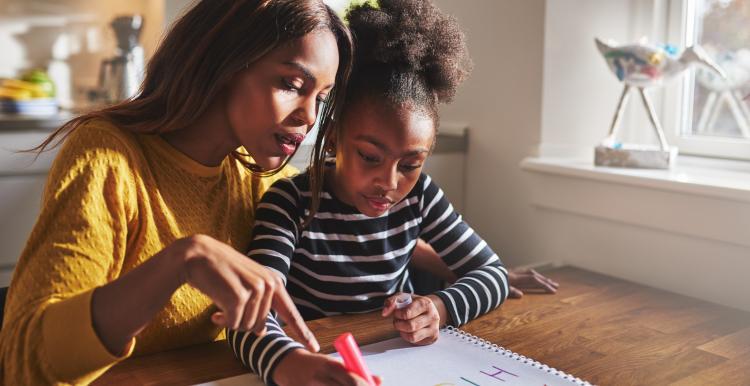Support for Parents and Carers of Children & Young People with Mental Health Issues

If you think your child is unhappy or if you are worried about their behaviour, it’s easy to be hard on yourself and think you aren’t doing a good job. Although it can be upsetting and worrying if your child is having a bad time, and it makes your relationship with them feel more stressful, you are not a bad parent. Children often take it out on those closest to them, so you might be feeling the effect of their very powerful emotions.
It's common to think that as a parent you 'should' be able to cope – but you don't need to do this on your own and help is available. Talk to people around you and ask for their help, or if you don't have family, friends or a community that you feel you can turn to for support have a look at what help is available in your area.
Tips & Advice
YoungMinds, a national charity for children and young people's mental health, has a parents' survival guide with many useful tips on how to provide general support to your child, as well as support for specific mental health issues.
General Advice
- Make sure your child knows that you love them and are proud of them. Even when things are busy or stressful, a word or a hug can reassure them a huge amount. Praise them for what they do well, and encourage them to try new things
- Be honest about your feelings - you don’t have to be perfect. We all get things wrong and shout or say unkind things from time to time. If this happens, say sorry to your child afterwards and explain why it happened, They will learn from you that it’s OK to make mistakes and that it doesn’t make you a bad person
- Be clear about what is and isn’t acceptable - and tell them why. Children need to know what is OK and what isn’t, and what will happen if they cross the line. Follow through on what you say as otherwise they may get confused or stop respecting the boundaries
- Own your own role - you are the parent, so don’t be afraid to take tough decisions. If your child sees you are scared of their reaction and always give in to them, it can make them feel very powerful, which can be frightening. Children need to know that you are there to keep them safe
Helping your child with a mental health problem
- Talk to your child: Even young children can understand about feelings and behaviour if you give them a chance to talk about it. Take it gently and give them examples of what you mean
- With older children, they might not want to talk at first. Let them know you are concerned about them, and are there if they need you. Sending an email or a text can work better if this is the way your child likes to communicate
- Ask your child what they think would help - they often have good ideas about solving their own problems
- If you can, talk to your child's other parent about your worries, when the child is not around. They might have a different take on what’s going on. Try and sort out how to deal with the behaviour together so you are using the same approach, and can back each other up. Children are quick to spot if parents disagree, and can try and use this to get their own way.
Get Support
Supporting someone else can sometimes be stressful. Making sure that you look after your own wellbeing can mean that you have the energy, time and distance you need to be able to help. For example:
- Set boundaries and don't take too much on. If you become unwell yourself you won't be able to offer as much support.
- Share your caring role with others, if you can. It's often easier to support someone if you're not doing it alone.
- Talk to someone about how you’re feeling. You may want to be careful about how much information you share about the person you’re supporting, but talking about your own feelings with someone you trust can help you feel supported too.
You may be entitled to social care support from your Local Authority to help you care for your friend or family member. You can contact them directly and ask for a carers assessment.
The charity Carers UK also provide more information and support for carers.
For a list of local and national young persons' mental health charities and services, please click here.

